Collaboration within NATO, the issue of Schengen Area accession, as well as the complex geopolitical realities of the Balkans and the Black Sea region, compel the authorities in Sofia and Bucharest to collaborate much more deeply than they currently do. Moving beyond the evident collaboration challenges, exacerbated by decades of mutual mistrust and a provincial mindset specific to the two political elites, the two EU and NATO member states must swiftly identify a path to solidify their strategic partnership and reinvigorate joint efforts for Schengen Area integration. The recent visit of Bulgarian Prime Minister Nikolai Denkov to Bucharest appears to be giving a boost to bilateral relations.
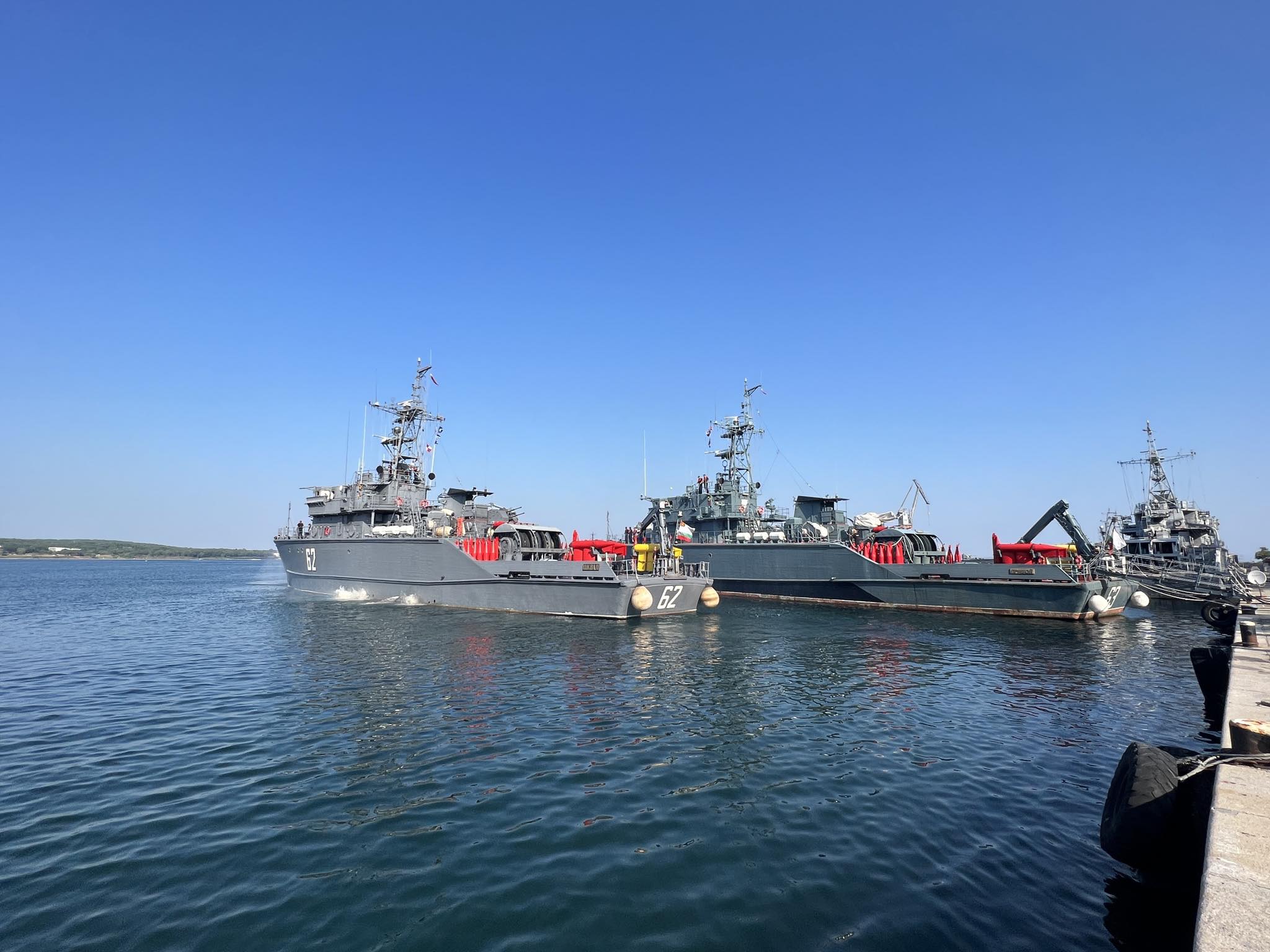
10 billions leva
The European Bank for Reconstruction and Development (EBRD) is interested in investing in the construction of a second bridge between Ruse and Giurgiu, as well as in railway infrastructure projects in Bulgaria. This was revealed during a meeting between the Minister of Transport and Communications, Georgi Gvozdeykov, and the EBRD representative in Bulgaria, Anca Ionescu, as reported by the Bulgarian Ministry of Transport and cited by the Romanian media.
“The construction of a new bridge over the Danube is a top priority that needs to be addressed quickly, as traffic along this route is increasing daily. We believe that Bulgaria and Romania, as two countries in the European family, should work together in partnership with the European Commission to implement this strategic project,” said the Minister of Transport. He added that any support that will help implement investments under the National Recovery and Resilience Plan (PNRR) and other European programs in the transport sector is important. “We have the necessary financial instruments, which provide us with significant opportunities to achieve our objectives, but we need to significantly accelerate the implementation activities,” Minister Georgi Gvozdeykov added.
So far, the EBRD has invested over 10 billion leva in transport projects in Bulgaria, which is approximately 5 billion euros. Its priority is a second bridge over the Danube at Ruse-Giurgiu, which is becoming increasingly important at the European level, said Ionescu, adding that she is prepared for future discussions on the construction of a maritime logistics hub at the Varna-West port. Regarding green transport, the EBRD wants to invest in both the rehabilitation of railway infrastructure and the construction of electric vehicle charging stations.
Gvozdeykov emphasized that the Ministry is ready, at the expert level, to immediately consider all EBRD proposals, taking into account the projects already planned under European support programs.
The Schengen Objective
The “excellent” relations between Romania and Bulgaria are confirmed by the existence of a strategic partnership agreed upon by the two countries, stated Romanian Prime Minister Marcel Ciolacu during a joint press conference with his Bulgarian counterpart, Nikolai Denkov, who was on a working visit to Bucharest.
“Today, I discussed with Prime Minister Denkov the excellent relations between our countries, which are now confirmed by the existence of a strategic partnership agreed upon in March of this year by the presidents of both states. We had a substantial exchange of opinions regarding common priorities with the aim of unlocking new areas of cooperation for the economic development of our countries. Our discussions touched on areas that have an impact on our citizens, such as transportation and energy,” said Ciolacu.
He highlighted the interest shown by both parties in implementing the European project that will ensure navigable waters on the Danube, as well as in building a second road bridge between Giurgiu and Ruse.
“Secondly, in the energy sector, we are considering better interconnection of natural gas transportation corridors, as well as a joint effort to diversify energy sources, in line with the proposal from the European Union for the green transition,” conveyed Marcel Ciolacu.
According to him, the discussions also covered the expansion of the Schengen Area and the completion of Romania and Bulgaria’s accession process “as soon as possible.”
“Already, following the recent installation of the governments of Romania and Bulgaria, our countries have made additional efforts to achieve this goal. We are still committed to strengthening European migration management tools and protecting external borders. (…) We agreed to maintain direct dialogue between us, as well as with other European partners,” stated Ciolacu.
The head of the Bucharest government further emphasized the interest in continuing close cooperation to promote stability and security in the Black Sea region. “Additionally, I discussed with Prime Minister Denkov the security situation in the Black Sea region, which has been deeply affected by Russia’s aggression against Ukraine. I emphasized the interest in continuing close cooperation between Romania and Bulgaria to promote stability and security in the Black Sea region and keeping the allied attention on security developments in this area,” said Ciolacu.
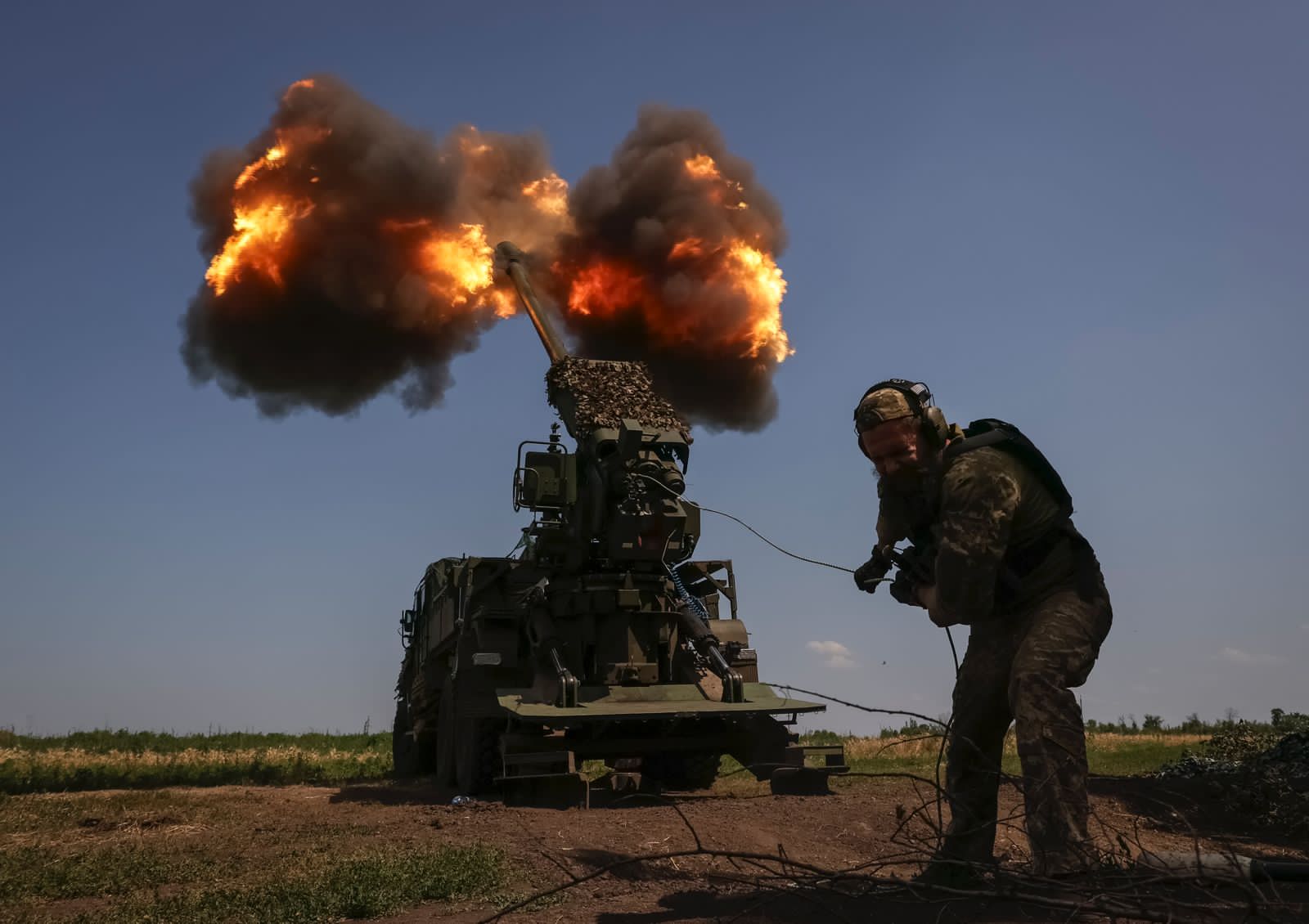
Strategic Bridges
The construction of a second bridge between Ruse and Giurgiu has gained a new dimension with the onset of the war in Ukraine, stated Bulgarian Prime Minister Nikolai Denkov after talks with Romanian Prime Minister Marcel Ciolacu at the Victoria Palace. However, until the project is completed, the Bulgarian official advocates for the swift operation of a ferry line between the two cities to handle the intense traffic.
“For years, we have been discussing a second bridge between Ruse and Giurgiu. It is a very important route that connects Bulgaria to the capital of Bucharest. This route has gained new significance with the start of Russia’s war in Ukraine. It is part of the logistical direction concerning the preparation of NATO’s eastern flank defense, and we have every reason to accelerate the planning, design, and preparation process for this bridge as soon as possible. That’s why we discussed possible sources of funding. Both states want this to happen as soon as possible. At the same time, given that this task still requires time, we have raised the issue of putting the Ruse-Giurgiu ferry line into operation as soon as possible, so that we can assist this intense traffic, which is closely linked to the highly developed business relations between the two states. Additionally, we want to assist tourists traveling in both directions,” said Nikolai Denkov.
Regarding accession to the Schengen Area, Nikolai Denkov emphasized that Romania and Bulgaria have met all the accession criteria and stressed that this process should be finalized jointly by the two states. “This is my first working visit, and it is not by chance that it takes place in Romania. We are strategic partners, and it’s not just because we have a signed agreement in this regard, but there are several projects that need to be completed, considering that they benefit our people and our states, which also have a European dimension. We need to make up for the short time we have with much more intense activity. (…) First of all, Schengen. We unanimously agree that we have met all the criteria set by the European Union, and it is not by chance that we have a positive decision from the European Commission and the European Parliament. We need to finalize the process, and we need to do it together, through discussions, both at the political and expert levels, with those states that still have some reservations. We have made concrete action plans between our Interior Ministries and Border Police, both at the political and expert levels, and we will work together with you to ensure a positive outcome for this process,” explained the Bulgarian Prime Minister.
“Clearly, we need to be very careful about what we tell our people in our countries because not everything depends on us. There are internal processes, both in the Netherlands and Austria, over which we have no control. But we need to do everything within our control and convey these things, both at the European level and to the governments and parliaments of the Netherlands and Austria,” added Nikolai Denkov, as reported by the Romanian media.
Military Partnership
Romanian President Klaus Iohannis declared at the end of the NATO Summit held in Vilnius that anti-air defense needs to be strengthened, emphasizing that Romania will play an important role through the regional training hub for F-16 pilots to be constructed in Romania, in collaboration with the Netherlands and other international partners.
“We have explored new possibilities for cooperation within NATO and with the Alliance’s partners to facilitate the development of capabilities and the defense industry, efforts that also favor the revitalization of Romania’s defense industry. We must strengthen our air defense. Therefore, we have decided to establish, in Romania, alongside the Netherlands and other international partners, a regional hub for training Romanian F-16 pilots, but this hub will also be accessible to allied and Ukrainian pilots. It is an important role that Romania has assumed,” said the head of state at the end of the NATO Summit.
He also announced at the NATO Summit the creation, alongside Bulgaria, of a regional Command dedicated to special forces, which is open to allies and partners.
The two defense ministers, Angel Tîlvăr and his Bulgarian counterpart, Todor Tagarev, signed a letter of intent for the joint establishment of a regional component command for special operations (R-SOCC). The event took place on the sidelines of the NATO Summit in Vilnius, marking the importance of the Pontic region for the North Atlantic Alliance.
Tîlvăr highlighted the excellent cooperation between Romania and Bulgaria in the field of defense, both bilaterally and as allies and Europeans. He also expressed gratitude to his Bulgarian counterpart for Sofia’s constant commitment to regional security and for the participation of Bulgarian troops in projects carried out under NATO’s auspices in Romania, within multinational commands.
“Recognizing the strategic importance of the Black Sea region and the fact that this region has become a critical frontier for the new European and Euro-Atlantic security architecture, Romania and Bulgaria have decided to advance cooperation within the Alliance context by establishing this regional command for special operations. The regional component command for special operations will be part of the measures to enhance deterrence and defense on the Eastern Flank,” conveyed the Romanian Ministry of Defense in Bucharest, as reported by the media.
As a sign of the good military collaboration between the two states, Bulgaria has sent soldiers and two ships (the minehunter TSIBAR and the mine clearance diving support vessel SHKVAL), which will participate in the annual “Poseidon 2023” exercise, alternately organized by Romania and Bulgaria from July 14 to 21.
“Over 750 military personnel from the Romanian Navy, other national defense structures, as well as from Bulgaria, Belgium, France, Greece, Italy, the United Kingdom, the United States (NAVEUR, Alabama National Guard), and Turkey will carry out joint activities in the Military Port of Constanta and in the training areas in the western part of the Black Sea, as part of the ‘Poseidon 2023’ multinational tactical-level exercise, organized annually alternately by Romania and Bulgaria,” according to the source.
The main objectives of the “Poseidon 2023” exercise include increasing interoperability among participating forces, as well as evaluating and certifying the capabilities of the Romanian Navy for NATO and EU missions and for national defense activities.
“Furthermore, ‘Poseidon 2023’ focuses on enhancing operational capabilities and the level of training for all participating forces, practicing NATO combat procedures in a multinational maritime, land, and air environment, using NATO engagement rules and procedures for command, control, and communications. The exercise represents a good opportunity to consolidate the high level of planning, leadership, and evaluation activities specific to mine warfare, surface warfare, and anti-air warfare,” the statement further mentioned.
During the exercise, the Romanian Navy will also carry out specific evaluation and verification activities for the frigate “Regina Maria” (F-222) for NATO’s Rapid Reaction Force (NRF 23) and the unique force package made available to NATO and the EU by Romania.
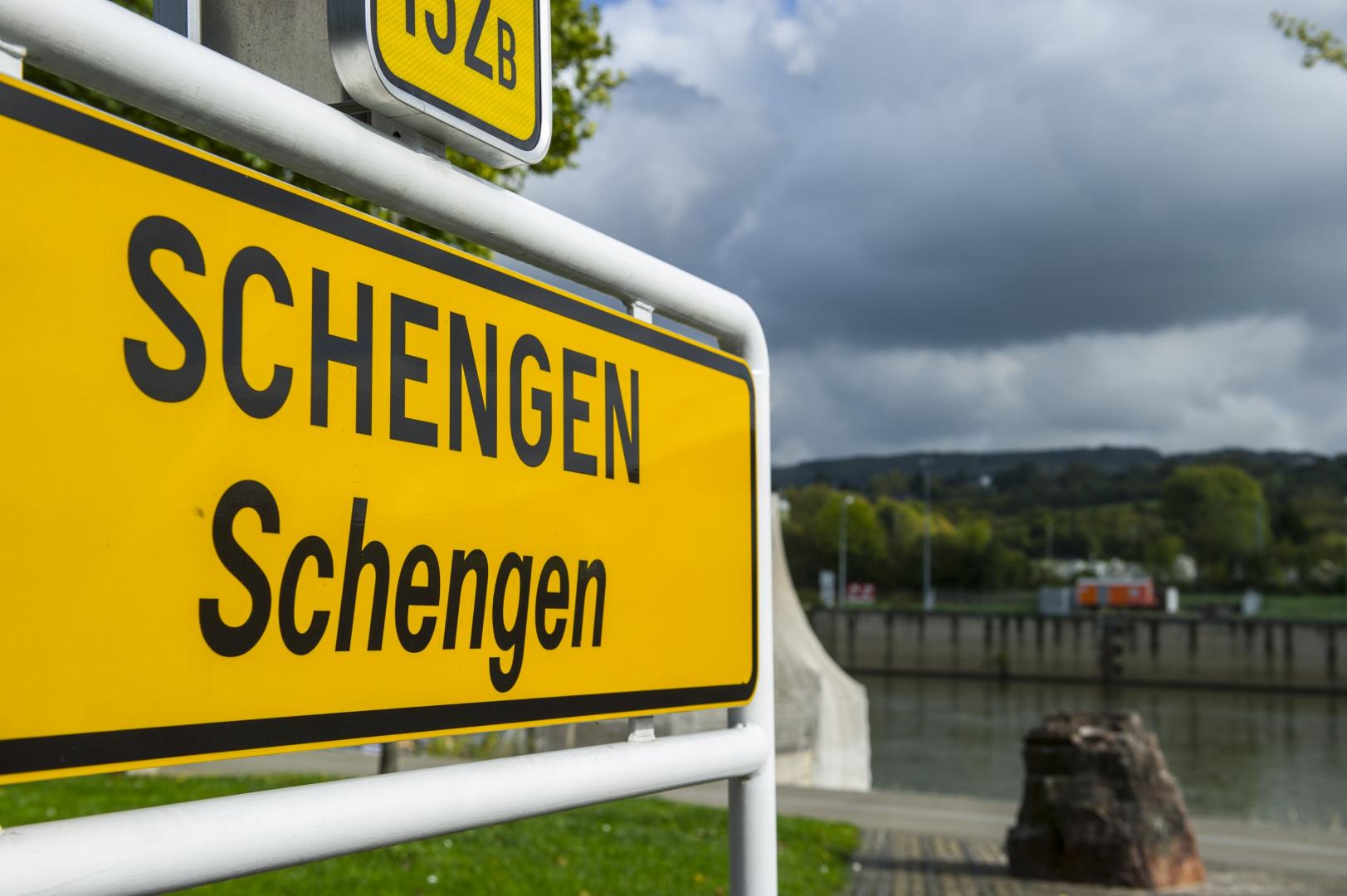
Schengen Bombshell
The European Parliament has recently adopted a resolution based on a petition submitted to the European Parliament by civil society in Romania, calling for the legality of Austria’s veto against Romania’s accession to the Schengen Area to be challenged. Additionally, the resolution calls on the European Commission to calculate the financial losses suffered by Romania and Bulgaria due to their non-admission to Schengen and to find mechanisms for compensation. The document was adopted with 526 votes in favor, 57 votes against, and 42 abstentions, as reported by the media.
The European Parliament emphasizes that Romania and Bulgaria have already met the necessary requirements for admission to the Schengen Area. Members of the European Parliament regret the decision of the EU Council on December 8, 2022, to reject Schengen membership “without providing any legal justification related to the accession criteria.” An expanded Schengen Area, without border controls, would make the EU stronger, say MEPs, noting that all member states have the right to join Schengen once they are ready.
The fact that Romania and Bulgaria are still outside the Schengen area is a burden on businesses and the population of both countries from a social and economic perspective, according to MEPs. Citizens of Bulgaria and Romania are discriminated against as they face delays, bureaucratic difficulties, and additional costs when traveling or doing business abroad compared to their counterparts in the Schengen Area. MEPs note that delays at border crossings experienced by Romanians and Bulgarians can range from hours to several days, compared to an average of 10 minutes without border checks at internal borders, worsening working conditions for truck drivers.
In addition to the harm caused to the EU single market by obstructing the free movement of goods between EU member states, the text mentions the “irreparable damage” to the environment, which does not align with the European Union’s climate neutrality goals. The health of truck drivers, customs officers, and people living near border crossings is endangered by the increased pollution caused by the numerous vehicles waiting to cross the border every day, with approximately 46,000 tons of CO2 emitted each year, according to MEPs.
The resolution calls on the European Commission to estimate the financial losses, unrealized gains, and environmental damage suffered by Romania and Bulgaria since June 2011 due to the “negative and unjustified decision” regarding the accession of the two countries to the Schengen Area and to explore possible mechanisms for compensating financial losses.
Russian propaganda
Eurodeputies underline that the current situation “is being instrumentalized by anti-EU propaganda, including Russian propaganda,” and “undermines the EU’s ability to promote its values and good governance in countries outside the EU.” Currently, all EU member states, except Bulgaria, Cyprus, Ireland, and Romania, are part of the Schengen Area of free movement, which also includes non-EU states (Iceland, Norway, Switzerland, and Liechtenstein). The European Commission has assessed that Bulgaria and Romania are ready to join Schengen, and the European Parliament has consistently supported the accession of these two countries, most recently in a resolution on October 5, 2022, and in a debate on December 14, 2022.
Renowned Bulgarian analyst Vladimir Mitev recently stated, as quoted by Bulgarian media, that “my feeling is that Romania feels somewhat stronger, in the sense that the resolution clearly states that Austria violates certain principles of the European Union, which was also written in Nicolescu’s petition. And it speaks, as you mentioned earlier, about the discrimination against Bulgarians and Romanians, but also about compensation. That is, this resolution now shows a clear political will, with over 80% of MEPs voting in favor of not allowing Austria to further delay the accession of Bulgaria and Romania, namely in Romania. On the one hand, I believe there is still a bit of hope.
But, to continue the reasoning, I think Romania continues to be very cautious in their enthusiasm for Schengen. They are much more reserved. It seems to me, rather than the opinions in the Bulgarian press, maybe because last December, when the accession was last voted on, there was enthusiasm in Romania that was not justified. Then it took a different turn. So-called sovereignist opinions about the EU developed in response to Romania’s rejection of being accepted into Schengen. And that’s maybe why Romania is now very cautious.”
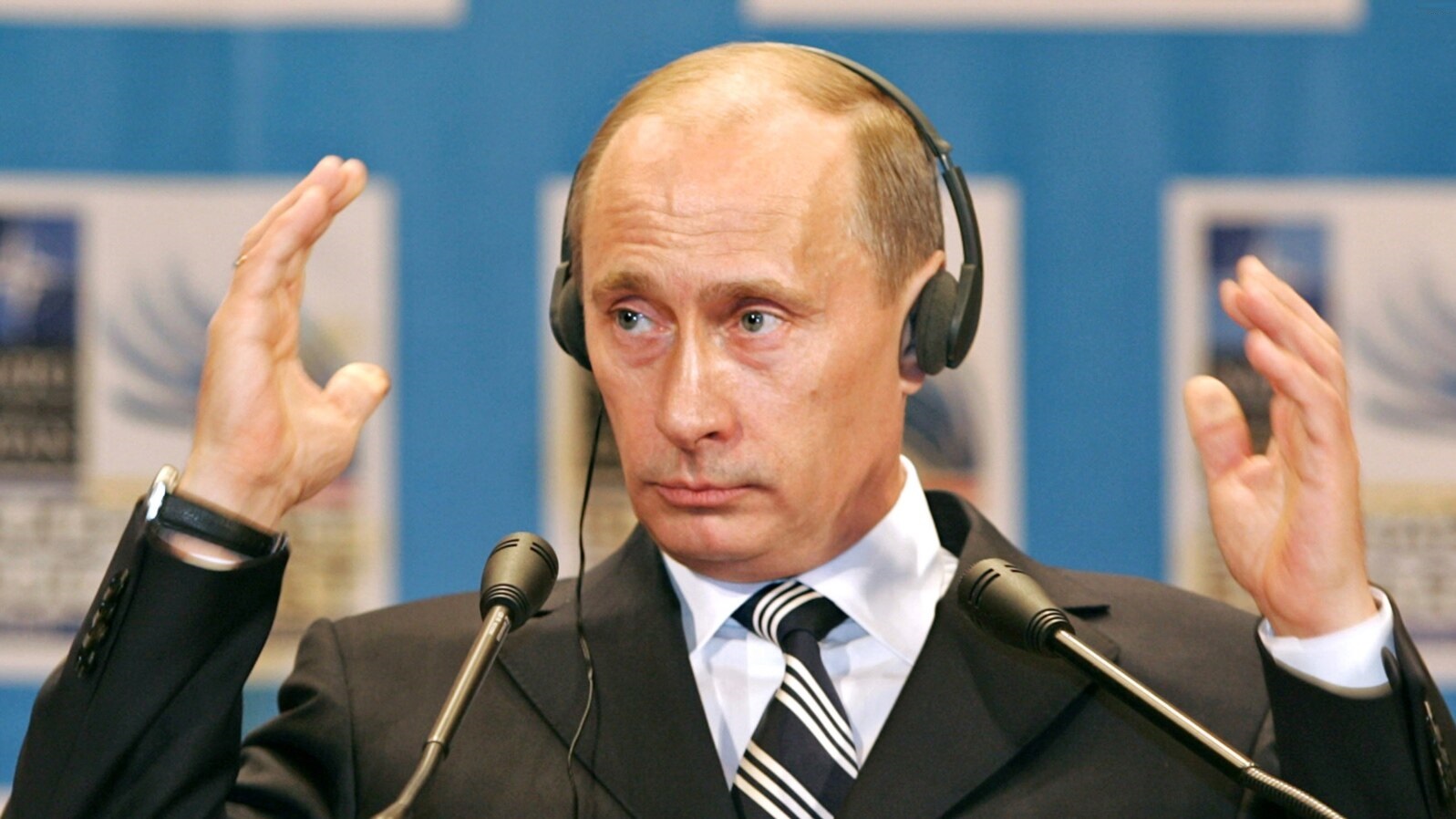
Parliamentary Diplomacy
Acceptance into the Schengen Area, stability in the Black Sea region, and the construction of a third bridge across the Danube River between Romania and Bulgaria were topics discussed during a recent meeting between the Ambassador of Bulgaria, Radko Vlaykov, and the President of the Foreign Policy Committee of the Chamber of Deputies, Deputy Biro Rozalia-Ibolya (UDMR Bihor).
“We discussed the possibilities of expanding bilateral cooperation between Bulgaria and Romania, taking into account not only foreign policy but also certain priorities such as accession to the Schengen Area,” stated the President of the Foreign Policy Committee of the Chamber of Deputies. The meeting took place before the visit of the Bulgarian Prime Minister.
In light of Bulgaria having a new coalition government for only ten days, the initiative by Ambassador Radko Vlaykov to seek a permanent partnership and collaboration with Romanian parliamentary structures (the Committees on Foreign Policy, European Affairs, and others) is of great importance, according to her.
“Of course, on the one hand, we have common interests regarding stability in the Black Sea region, which is currently a priority, and equally important is our acceptance into the Schengen Area. Both our countries find themselves in this situation, but that doesn’t mean we are tied together, as each has its own path in this process. However, the interest is indeed for both of us to enter the Schengen Area as soon as possible. That’s why I considered it necessary to discuss this possibility, the project of a third bridge over the Danube, and ensuring navigability on the river. We also talked about organizing a joint online meeting in September between the leadership of the two Foreign Policy Committees from Romania and Bulgaria,” added Romanian parliamentarian Biro Rozalia-Ibolya, as reported by the media.
Nuclear Brotherhood
Romanian and Bulgarian officials participated in a meeting of the 12 EU member states that are in favor of nuclear energy. This event took place on the sidelines of the informal meeting of EU Energy Ministers in Valladolid, Spain, on July 12th. Ministers from France, Bulgaria, Croatia, the Czech Republic, Finland, Hungary, the Netherlands, Poland, Romania, Slovakia, Slovenia, and Sweden attended, while Belgium and Italy participated as observers.
Participants reaffirmed the crucial role of nuclear energy in ensuring the stability and resilience of the electricity grid across the European energy market. They expressed the view that nuclear technologies and renewable energy sources complement each other in achieving the EU’s climate and energy security objectives. The ministers prepared a joint document addressed to the European Commission, requesting recognition and appropriate support for nuclear energy. They argued that the principles of technological neutrality and the sovereign right of member states to determine their energy mix should be duly considered in European policies.
In a meeting with his Greek counterpart, Theodoros Skylakakis, Minister Radev discussed deepening energy cooperation and the strategic development of energy links between the two countries. Enhancing gas supply security through the development of necessary infrastructure, including key projects such as the liquefied natural gas terminal near Alexandroupolis, the Greece-Bulgaria gas interconnector, the Alexandroupolis-Burgas oil pipeline, and hydrogen-related initiatives, were also discussed.
The strengthening of bilateral cooperation in electricity and gas connectivity was a topic of discussion between Minister Radev and the Romanian Secretary of State in the Ministry of Energy, Dan-Dragos Drăgan.
Common Interests
Romanian Minister of Agriculture, Florin-Ionuţ Barbu, will join his Bulgarian counterpart in Warsaw for a meeting of Agriculture Ministers. The primary agenda will be to find solutions related to the transportation of cereals, given the context of the war in Ukraine. They will also discuss the release of deposits and the export of a portion of the new harvest for Romanian farmers.
According to a statement from the Romanian Ministry of Agriculture and Rural Development (MADR), Minister Barbu will participate in the meeting of agriculture ministers from Poland, Bulgaria, Hungary, Romania, Slovakia, Moldova, and Ukraine in Warsaw. The main topic will be the situation on agricultural markets due to Russia’s aggression against Ukraine and the measures that need to be taken to ensure fair competition rules for farmers in EU member states and candidate countries.
At the end of the meeting, participants will sign a joint declaration by the Agriculture Ministers of Bulgaria, Hungary, Poland, Romania, and Slovakia regarding the necessity of extending EU preventive measures on certain products originating from Ukraine.
Poland and Slovakia have called for a further extension of the embargo on Ukrainian cereals until the end of this year, dismissing concerns that Russia’s decision to terminate an international agreement on the Black Sea corridor could disrupt food supplies. Both countries, along with Bulgaria, Romania, and Hungary, currently impose restrictions on the purchase of cereals from Ukraine until mid-September, following protests by farmers in these five countries due to the influx of cheap Ukrainian cereals. The EU agreement still allows the transit of cereals from Ukraine to other countries.
“I see no compelling argument for the current embargo to expire in mid-September. I hope that the embargo will not end, that we will be able to get its extension within our coalition of five EU member states,” said Polish Agriculture Minister Robert Telus in a radio interview on Tuesday.
The European Commission had previously signaled its intention to gradually reduce and eliminate the “exceptional and temporary” restrictions affecting Eastern European member states. Furthermore, after Russia terminated an international agreement on the Black Sea corridor on Monday, Brussels announced that it would spare no effort to support the stable delivery of agricultural products from Ukraine to global markets through so-called corridors of solidarity.
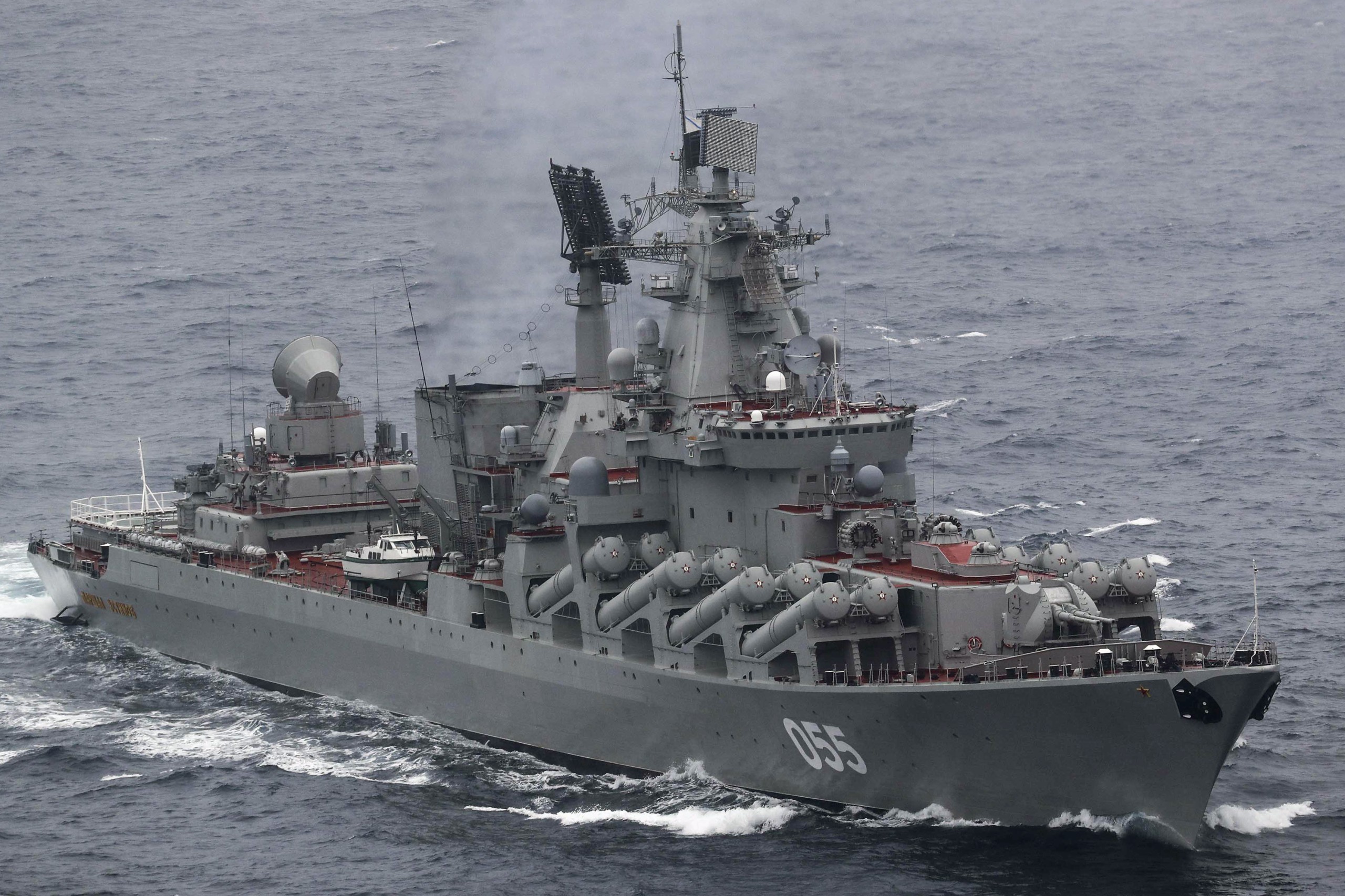
Grateful Ukraine
Recently, the leader of Kiev, Volodymyr Zelensky, conducted an official visit to Sofia, where he obtained a promise from Bulgaria’s new pro-European Prime Minister, Nikolai Denkov, to increase the military assistance that Bulgaria provides to Ukraine in its war with Russia.
The two leaders did not detail the agreed-upon military aid in front of the press, nor did they specify the types of weapons and ammunition that would be included. Zelensky only mentioned it as a “defensive package, not an offensive one,” also noting that it includes artillery. Bulgaria is a major producer of ammunition compatible with Soviet-designed weapons used by the Ukrainian military.
The topic of military aid for Ukraine is a contentious issue in Bulgaria, a country with strong traditional ties to Russia. While former pro-Western Prime Minister Kiril Petkov (who was ousted by a vote of no confidence last year) strongly supported providing military aid to Ukraine, President Rumen Radev opposed it.
Despite the President’s opposition, the Bulgarian government has been delivering arms and ammunition to Ukraine since the early days of the Russian invasion, albeit through third-party states. Since then, the Bulgarian arms industry has been operating at maximum capacity and had record exports of around four billion euros last year.
“We cannot sit with folded arms in the face of what is happening just hundreds of kilometers from our borders,” said the new Prime Minister, Nikolai Denkov, explaining his agreement for Bulgaria to further support Ukraine with military aid following his discussion with Zelensky.
Zelensky also met with his Bulgarian counterpart, Rumen Radev, who remained reserved about providing military aid to Kiev. He expressed concerns about the depletion of Bulgarian army stocks and the fueling of the conflict with Russia. “This conflict has no military solution and will not be resolved with more weapons,” remarked the Bulgarian president, who called for a constant effort toward de-escalation, ceasefire, and a peaceful diplomatic solution.
Ukrainian President Volodymyr Zelensky said in Sofia, “I want to thank you, Bulgaria, for supporting and protecting our people.”
Zelensky expressed gratitude for Bulgaria’s support in the defense sector, emphasizing that this assistance is for defense, not offense. “This is a package for parents to protect their children,” said the Ukrainian president, adding that discussions would continue regarding the ongoing treatment of wounded Ukrainian soldiers in Bulgaria and the training of medical personnel in Bulgaria.
The Ukrainian president called on Bulgaria to participate in the reconstruction of Ukraine in the fields of education and the environment. He also discussed energy cooperation as part of the stability architecture in both countries. “We must protect people from price crises,” said Zelensky, expressing satisfaction that energy is becoming one of the priorities of cooperation between Bulgaria and Ukraine. He mentioned that the two parties also discussed cooperation in the field of European and Atlantic integration and signed a declaration. “I would like to note Bulgaria’s willingness to participate in these efforts,” said Zelensky, noting that consultations had been launched at the level of advisors and ambassadors and that issues were beginning to be discussed at the ambassadorial level in Bulgaria. Zelensky mentioned that Bulgaria’s ambassador to Ukraine has not yet been appointed, adding that he would comment on this matter in his meeting with Bulgarian President Rumen Radev.
Current Issues
Among the issues between Bulgaria and Romania is the matter of Romanian truckers transiting the Balkan state.
Romanian road transporters are required to park their trucks in Ruse, a location near the Romanian border, to be able to cross the border. However, they are forced to use parking spaces managed by a private operator who applies discriminatory and excessive fees for Romanian trucks compared to Bulgarian ones, according to the National Union of Road Hauliers from Romania (UNTRR), as reported by the media.
The truck parking in Ruse was put into operation in June and is located near the border crossing point with Romania at Giurgiu.
“While the road transport industry is requesting the elimination of controls at the Romanian-Bulgarian border crossing points and the creation of special lanes to facilitate the passage of cars and trucks registered in Romania and Bulgaria, paradoxically, the Bulgarian authorities have supported the development of a private truck parking area on the municipality’s land in Ruse. It started operating this year in June without any official announcement, public information, or contact details on the web, email, or in the media,” the UNTRR stated.
According to UNTRR, upon entering the parking area, each truck receives a pager that vibrates and rings to notify the driver 10 minutes before it’s their turn to cross the border.
Additionally, Romanian drivers are required to pay a discriminatory fee of 25 euros compared to Bulgarian drivers, who pay a fee three to four times lower, at only 15 Bulgarian leva, approximately 7 euros.
On the other hand, Romanian hauliers complain that in Ruse, Bulgarian and Ukrainian transporters are given priority, sometimes even without entering this parking area. If they are the last to enter, they exit first ahead of those waiting, even after 24 hours.
“This coordinated approach by the Bulgarian authorities violates the principles and regulations of the EU that prohibit differentiated and discriminatory taxation of transporters based on nationality. In the absence of any measures, this practice will expand, and border authorities will create longer waiting times to justify the establishment of such abusive and discriminatory practices, contrary to the objectives of increasing the fluidity of traffic for various means of transportation within the Community, as established by European Regulation No. 1,100/2008, which provides for the elimination of border controls between EU member states in road transport,” UNTRR representatives argue.
“Unfortunately, Bulgaria’s actions are contrary to statements of collaboration with Romanian authorities to expedite the accession of the two countries to the Schengen Area,” the statement concludes.
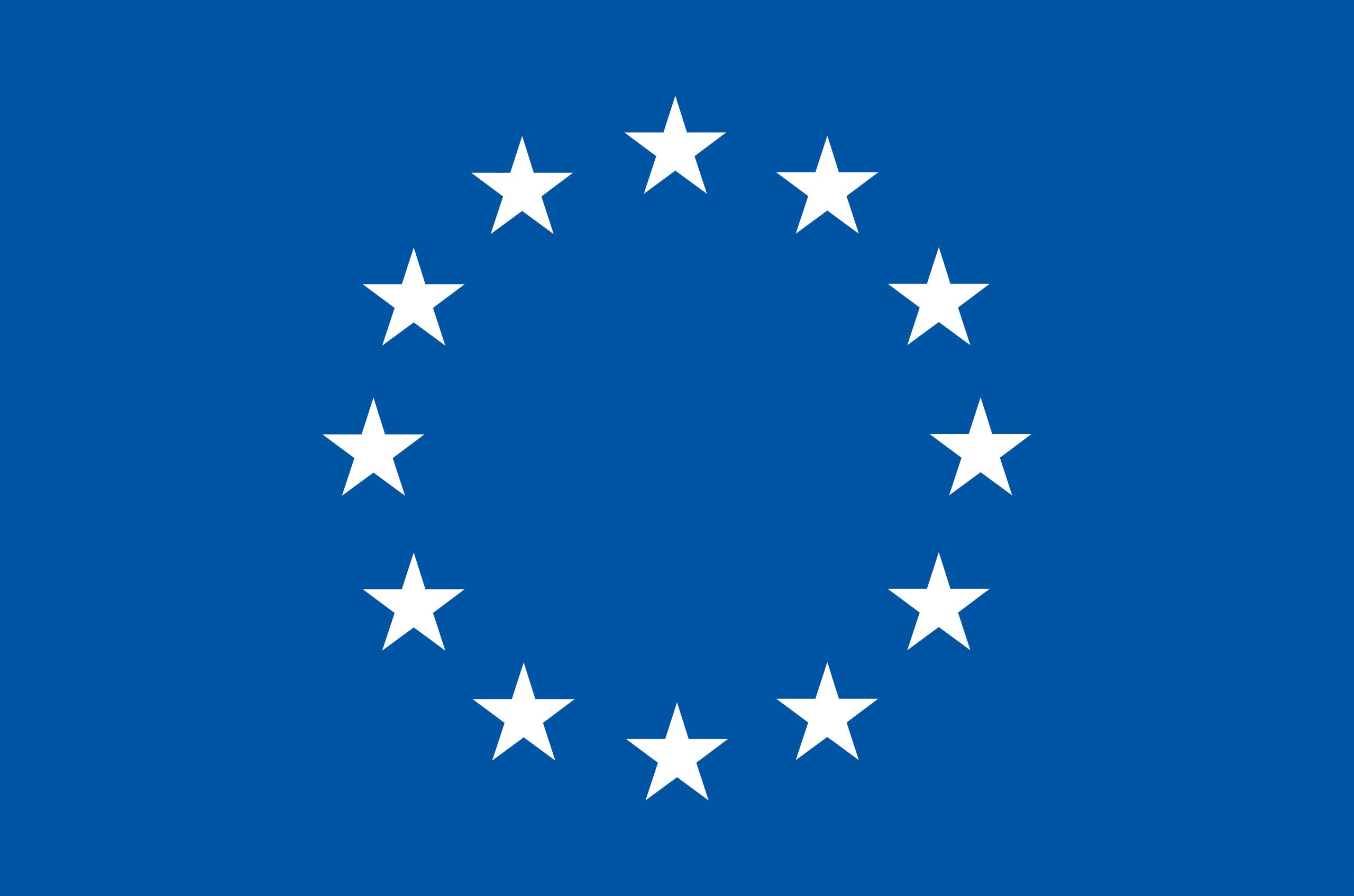
Strong Threats
In 2022, there were frequent situations where Romanian truck drivers had to wait for up to three days to cross this border point, according to UNTRR representatives.
UNTRR believes that the actions of the Bulgarian authorities, by imposing the mandatory use of this parking area and differentiated taxation, represent discrimination that should not exist within the European Union. “If Bulgaria continues these practices, then we believe that Romania should decouple from Bulgaria for the purpose of joining the Schengen Area. Romania has nothing to lose in its relationship with Bulgaria, where border crossing times are increasing anyway. Romania can benefit from the elimination of waiting times at the border with Hungary, through which over 90% of Romania’s foreign trade road transport with EU countries is conducted,” stated the organization’s representatives.
UNTRR will continue to bring these issues to the attention of the members of the Romanian Parliament, the European Parliament, the relevant Bulgarian authorities, and the competition authorities until this situation is resolved.

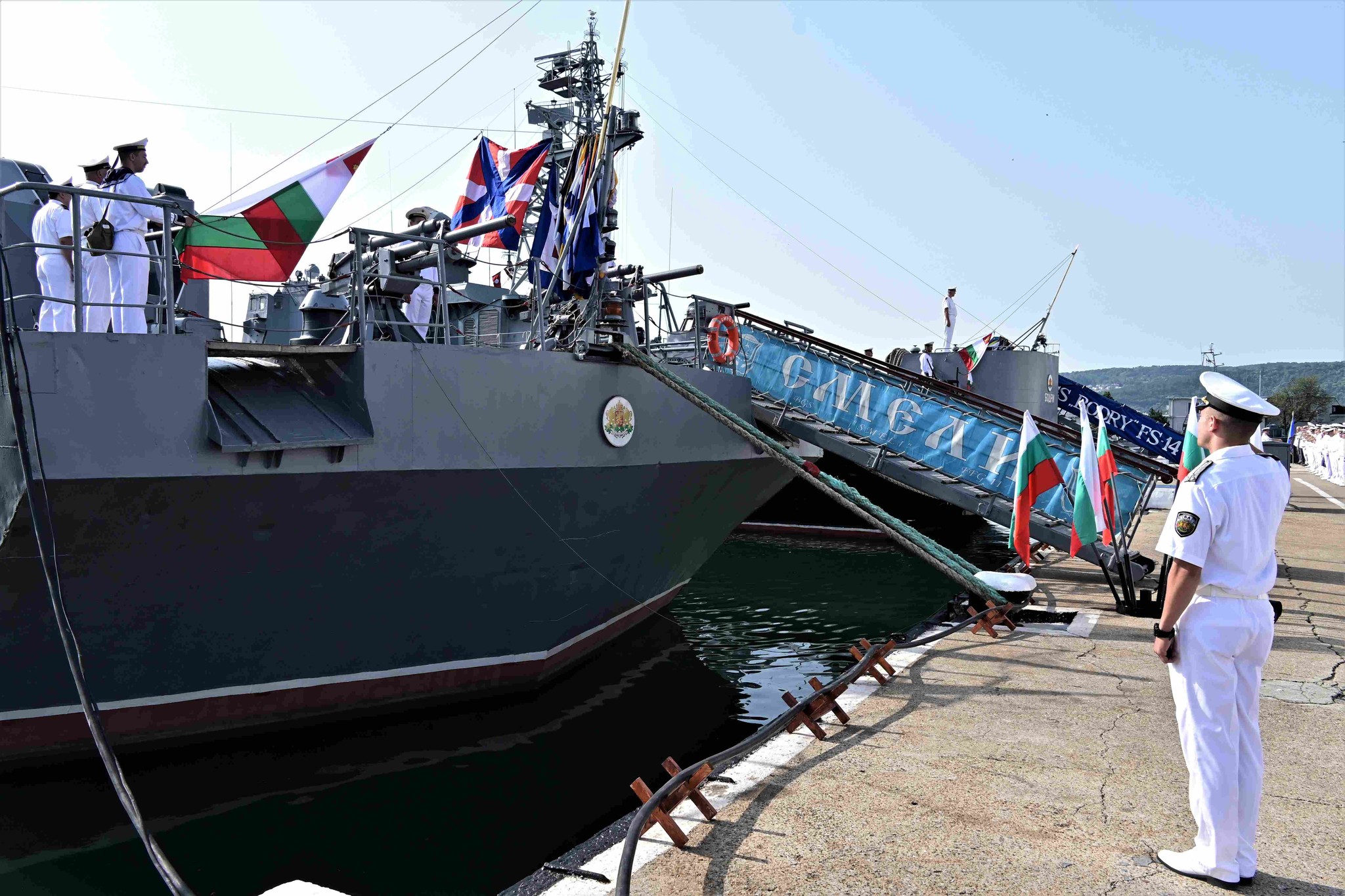
0 Comments